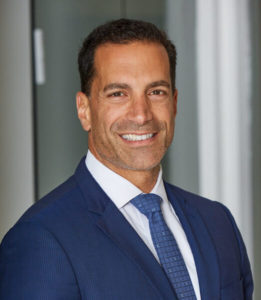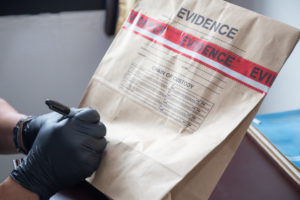
Negligence is the basis for most personal injury claims. However, before you can recover any money for your damages, you must provide evidence showing that the other party caused your injuries.
What counts as evidence depends on the type of case, the rules of evidence, and a judge or jury’s perception of an item. A judge or jury will rule on a case based on the evidence presented at court.
Table of Contents
Building a Case to Prove Your Allegations

It is essential that you work diligently to uncover legal evidence that supports your allegations. The strength of the evidence presented could be the difference between winning or losing your case.
Some types of evidence that you might encounter in a courtroom include:
- Physical evidence – Any material object that relates to the facts and issues in dispute
- Hearsay evidence – Most hearsay evidence is not admissible in court because the person testifying is repeating an out-of-court statement made by another person
- Testimonial evidence – Sworn statements made by expert witnesses, eyewitnesses, parties to the case, and other individuals with direct knowledge that has a bearing on the disputed facts
- Documentary evidence – Any evidence contained within or on documents
- Circumstantial evidence – Evidence that implies a fact by proving other events or circumstances that leads to a reasonable assumption about the fact
- State evidence – Term used for testimony given by a criminal defendant to prosecutors about other alleged criminals
The above list is not inclusive. There could be other evidence presented at a trial.
The rules of evidence govern what evidence is admissible at trial. The Federal Rules of Evidence are used in federal courts. The Florida Rules of Evidence are used in cases tried in Florida state courts.
What Are Common Types of Evidence Used in Accident Cases?
Each personal injury case and trial are unique. Therefore, the evidence in one case may not apply in another case. However, the categories of evidence in accident cases are often the same. In other words, you may have the same types of evidence in car accident cases and slip and fall cases as you would in motorcycle or truck accidents and workplace accidents.
Examples of evidence in a personal injury case include, but are not limited to:
Accident Reports or Police Reports
When you are involved in a motor vehicle accident, you call 911 to report the crash. Police officers come to the accident scene to investigate and file a report. The information on an accident report can be very useful during a personal injury investigation.
However, some of the information on the police report may not be admissible in court. For example, the police officer’s direct observations and what the parties told him at the accident scene may only be admissible if the parties are present to testify and can be cross-examined. Hearsay and assumptions made by the officer may or may not be admissible.
Photographs and Videos of the Accident and Your Injuries
If you took photographs and videos of the accident scene, those images might be used as evidence. In addition, videos from traffic cameras, bystanders, and surveillance cameras may also be used as evidence in an injury case.
It is also helpful for your case to document your injuries with photographs and videos. Takes pictures and makes videos of your injuries throughout your recovery.
Medical Records
You have the burden of proving that the accident caused your injuries. Your medical records are essential pieces of evidence to prove that you sustained injuries at the time of the accident.
Medical records may include:
- Ambulance records
- Emergency room records
- Physician’s records
- Medical bills
- Hospital records
- Psychological records
- Records from a primary care physician
- Records from a specialist, therapist, or other health care provider
It is not wise to sign a medical release for an insurance company. Instead, allow your Miami personal injury lawyer to submit copies of your medical records when necessary.
Witness Testimony
There may be several types of witnesses that testify at a personal injury trial. The parties to the action often testify. Additionally, you may have testimony from expert witnesses, physicians, and eyewitnesses.
Employment Records and Statements
If you cannot work because of your accident injuries, you need medical records stating you cannot work. You also need copies of employment records proving how much money you lost because you could not work.
You are entitled to reimbursement for your lost income caused by an accident. You may also receive compensation for future lost wages and reductions in earning capacity if a disability or impairment affects your ability to earn an income.
Insurance Policies and Documents
In most personal injury cases, the at-fault party has insurance coverage. If so, you need copies of the insurance policy and documents to prove that the policy covers the accident and the policy limits regarding damages.
Pain and Suffering Journal
Proving non-economic damages is challenging. Those damages include:
- Mental anguish
- Emotional distress
- Physical pain
- Loss of enjoyment of life
- Scarring and disfigurement
- Reduced quality of life
- Impairments and disabilities
Because there is not a “bill” or “document” you can present to prove the value of your pain and suffering, keeping a journal can help. Write down how your injuries impact your daily activities and relationship with family and friends. Note the level of pain you experience, bouts with depression, eating disorders, sleep problems, and other issues.
When you testify about your injuries, it is helpful to have your journal refer to provide specific details that help the jury members “feel” your pain and suffering.
Call Our Miami Personal Injury Lawyer Today for a Free Consultation
If you or a family member was injured in an accident or other incident, you could be entitled to compensation for your injuries. Contact our law office by calling us at (305) 937-0191 to schedule a free consultation with one of our Miami personal injury attorneys. Our legal team at Shaked Law Personal Injury Lawyers fights to get you the money you deserve.
